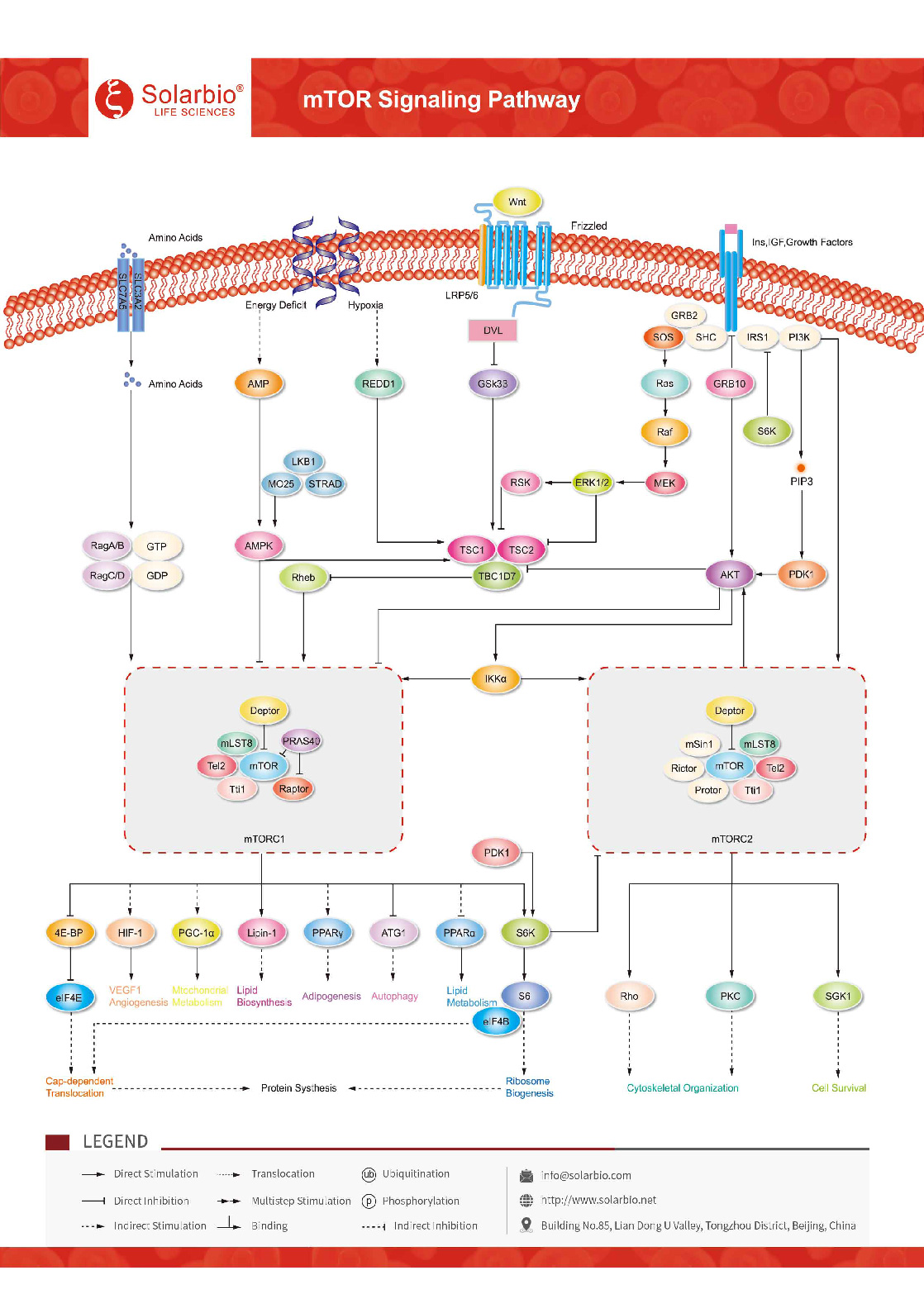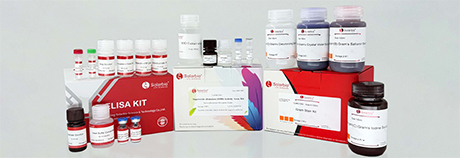mTOR Signaling Pathway
Mammalian target of Rapamycin (mTOR), is a member of the phosphatidylinositol 3-kinase-related kinase protein family, which is a highly conserved serine/threonine protein kinase that regulates cell growth, cell proliferation, cell motility, cell survival, protein synthesis and transcription. mTOR is present in two distinct complexes, mTOR complex 1 (mTORC1) and 2 (mTORC2). mTORC1 contains mTOR, Raptor, PRAS40, Deptor, mLST8, Tel2 and Tti1, which is inhibited by rapamycin. mTORC1 is activated by the presence of growth factors, amino acids, energy status, stress, and oxygen levels to regulate several biological processes including lipid metabolism, autophagy, protein synthesis and ribosome biogenesis. On the other hand, mTORC2 contains mTOR, mSin1, Rictor, Protor, Deptor, mLST8, Tel2 and Tti1, which responds to growth factors and controls cytoskeleton organization, metabolism and survival; mTORC2 can promote cell survival through activation of Akt, regulate cytoskeletal dynamics through activation of PKCα, and control ion transport and growth through phosphorylation of SGK1. Abnormal mTOR signaling is found in a variety of diseases, such as cancer, cardiovascular disease and diabetes









